The Rising Stars of Impact Arts
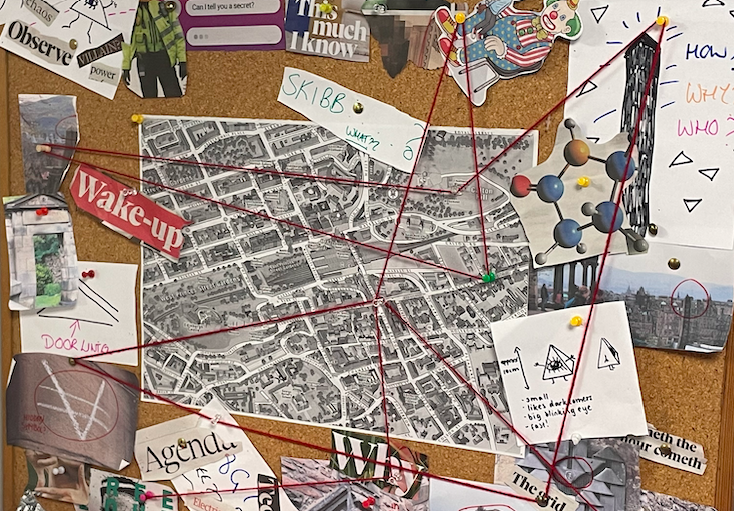
Tucked away in a cobblestoned cul-de-sac just outside Edinburgh New Town, a movie premiere was in full swing. A series of new short films were being presented on a large projector screen while an audience of young people and their families engaged with activities, viewed the props and storyboards on display, and snacked on Tunnocks Tea Cakes and Irn Bru in between showings. These films, spanning diverse genres from a detective thriller on the evils of pyramid schemes to a stop-motion animated short on one man’s misfortunes in Las Vegas, were produced by youth participants in programmes run by the Scottish non-profit organisation Impact Arts. Yet in certain moments of admiring particularly creative shots or concepts, I entirely forgot that these shorts were produced by young people not only with little to no prior experience in various forms of filmmaking, but many of whom face personal hardships that have prevented them from engaging fully with traditional educational settings.
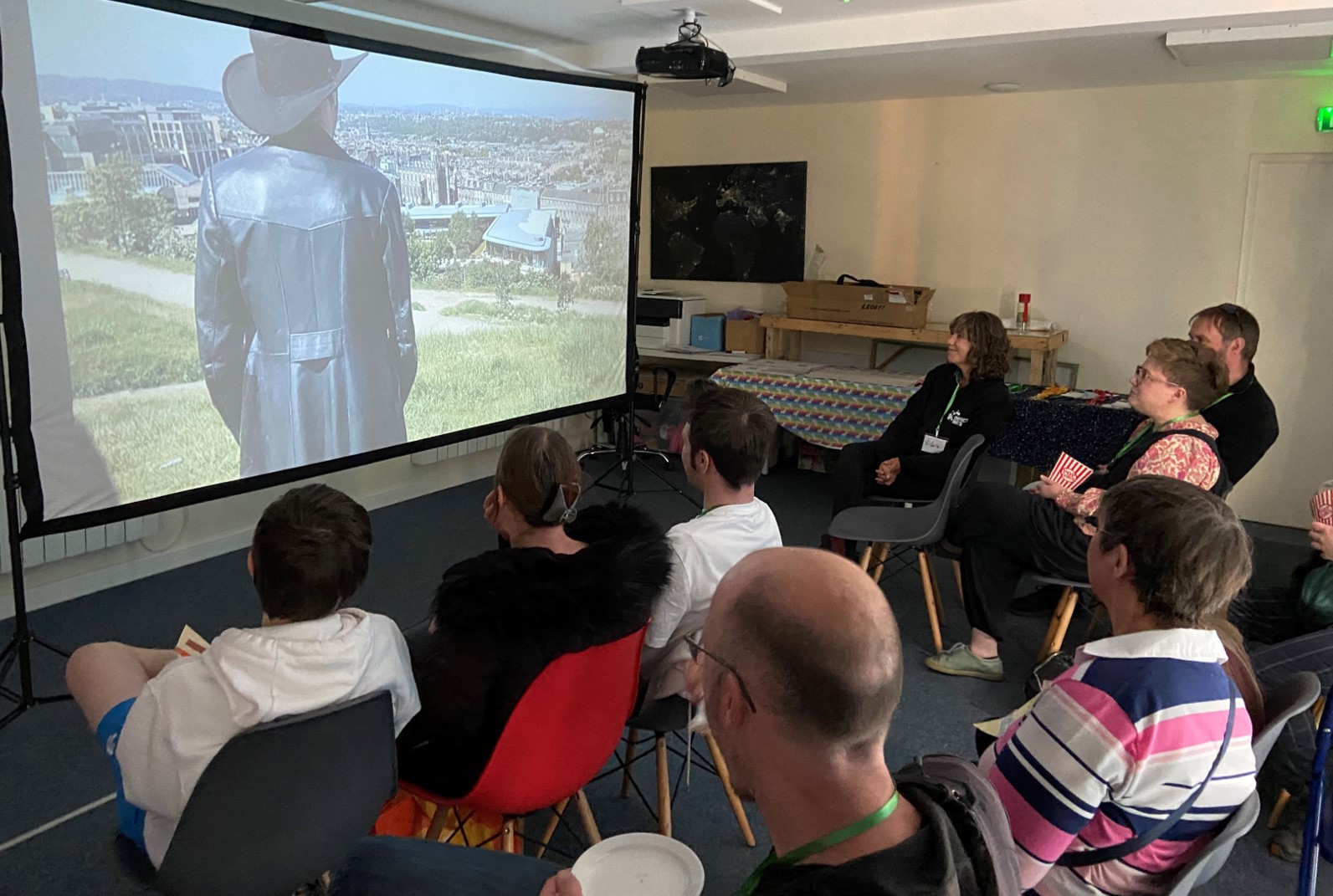
As part of my Leadership in Action Project in my second summer as a Laidlaw Scholar, I had the opportunity to partner with Impact Arts, a charitable organisation that implements their mission statement of ‘tackling inequalities in Scotland through creative engagement’ into a variety of programmes that they run year-around in their Edinburgh, Glasgow, Ayrshire, and Lanarkshire locations. These include the CashBack programme, which helps participants to build confidence and social skills in a creative setting, as well as Impactful Starts, an employability-oriented programme targeted toward individuals who are out of work or education. In order to participate in programmes such as CashBack or Impactful Starts, the participants must fall into at least one of the following criteria: they must be unemployed or at risk of disengaging from school, living in an area of multiple deprivation, living with a disability or mental health condition, or at risk of engaging in anti-social behaviour. The various backgrounds which the young people have come from – and the different disadvantages which they have faced in their lives – means that the coordinators at Impact Arts have to create workshops that can be effectively adapted to the particular needs of each participant, and help them to overcome the barriers that they face by engaging in creative activities.
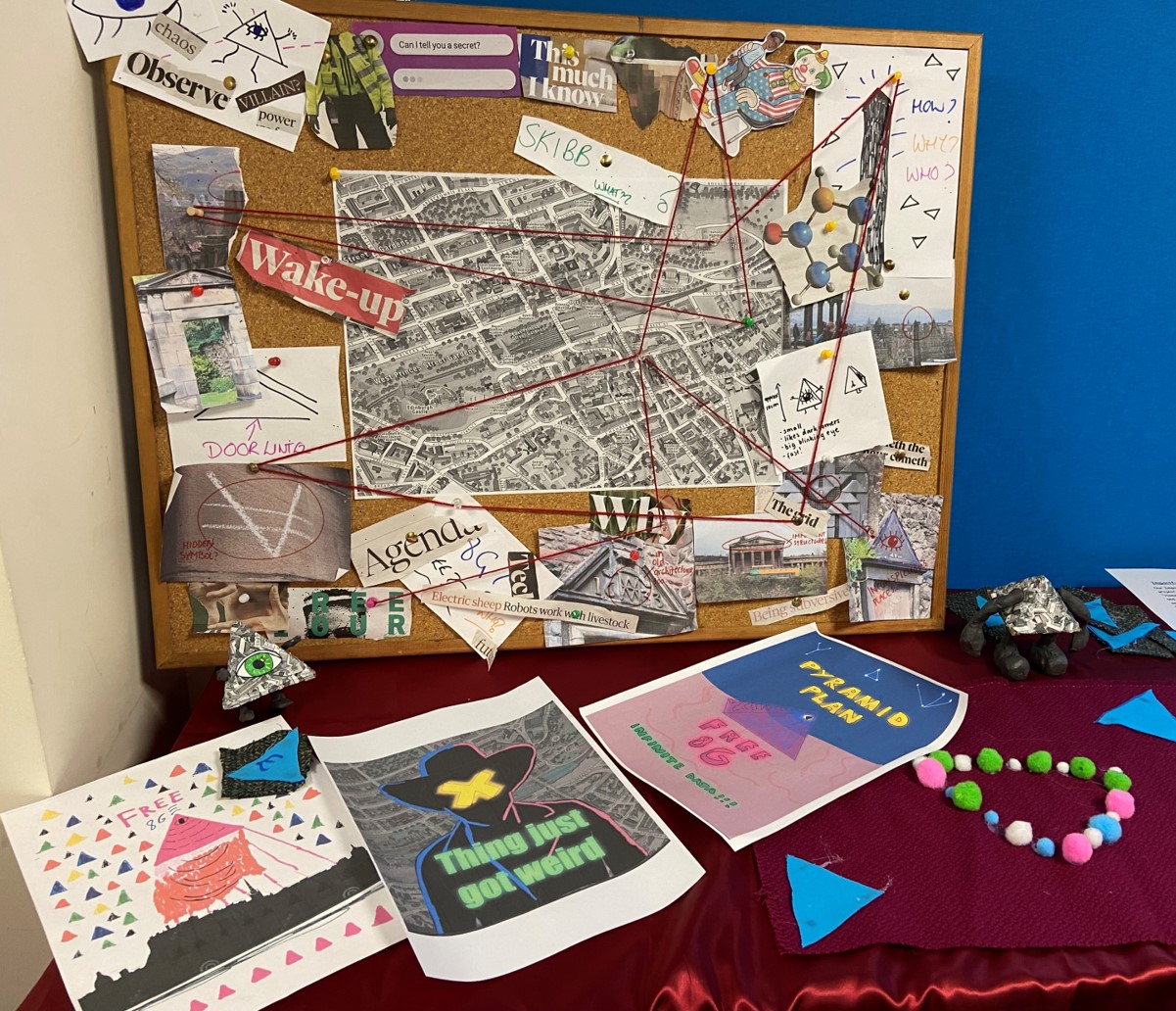
During my LiA Project, I attended and assisted at some of the CashBack sessions in the Edinburgh location, as well as created and piloted my own workshop for future sessions of the programme. This workshop combined the ideas and outcomes of my first year of research as a Laidlaw Scholar with Impact Arts’s current focus on collaborations with local heritage sites in Scotland. Centred on the concept of making personal connections to the art and literature of the past, and inspired by the images produced by the nineteenth-century photographer Julia Margaret Cameron, the activity would involve participants taking photographs that visualised elements of Scottish folklore or history.
In addition to designing my own workshop, I also had the opportunity to experience and participate in the organisation of the different projects and initiatives coordinated by Impact Arts. As well as running programmes at their own venues, the staff at Impact Arts also visit local schools to run various kinds of crafting activities. On my first day of visiting the Edinburgh location of Impact Arts, I assisted with preparations for one of these school visits, helping to make phone holder bases out of paper towel rolls that the students would then be able to decorate. During the programme sessions, I was also able to see how Impact Arts enables each of their participants to pursue creative activities of their choice in a positive and supportive environment. The staff team lets participants play their own music over the studio speakers and brings their favourite snacks for them to enjoy during the sessions. In this way, the sessions at Impact Arts are tailored to the individual interests, preferences, and comfort zones of each participant. For instance, in one session that I attended, one person was working on a design for a character in the stop-motion animation that the group was developing, while another participant was working on an entirely self-defined project of making a Muppet inspired by Jim Henson’s Fraggle Rock. The structure of the Impact Arts programme emphasises that these approaches are equally positive forms of creative self-expression, and encourages participants to find concepts and artistic mediums that particularly resonate with their own personal interests.
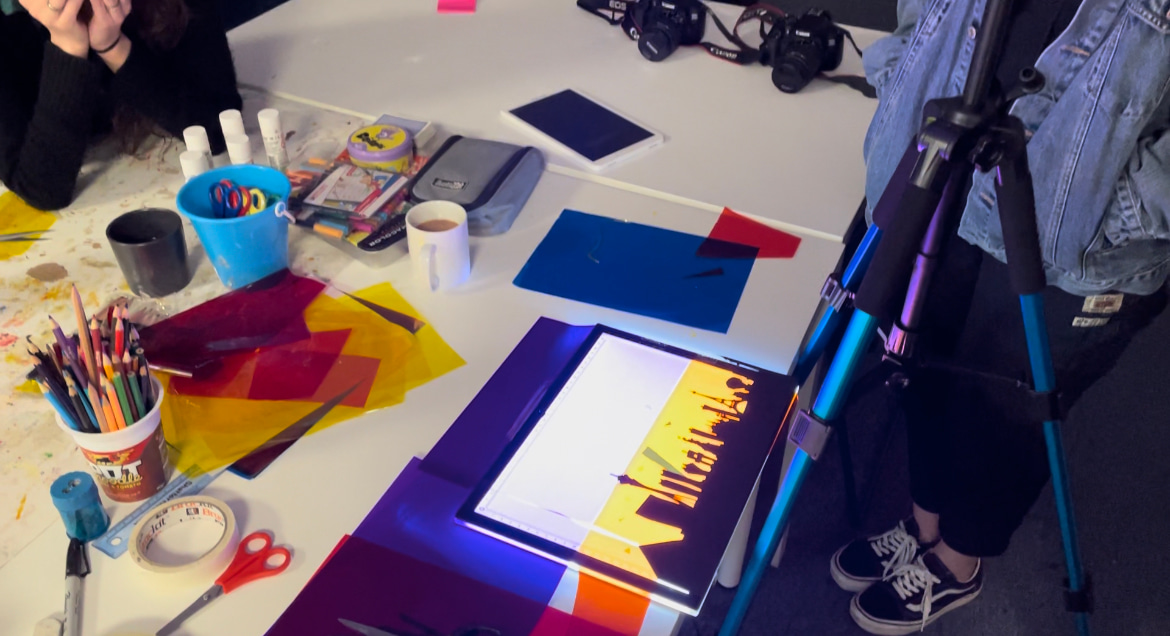
As my own LiA project drew to a close, I attended the final showcase of the works produced during the spring sessions at Impact Arts to see the completed projects created by the programme participants. Impact Arts’s focus on wellbeing and creating comfortable spaces for their participants continued into the showcase event, with each guest donning a lanyard with their name and a coloured band corresponding to their willingness to speak with other attendees upon entering the venue. Each of the films were shown twice during the event, with an opportunity for the participants to do an informal talkback to the showcase guests after the screenings. While watching the films created by some of the participants that I had met during the programme sessions in the weeks prior, I found it wonderful to see how taking on acting roles allowed these young people to express themselves confidently and often humorously in front of the camera. Whether delivering witty one-liners as a mysterious detective character or channelling a comedically stuffy and pretentious persona through a Muppet lip-synching to Johnny Cash’s ‘Ring of Fire’, the participants made unique projects that enabled them to express themselves authentically and creatively.
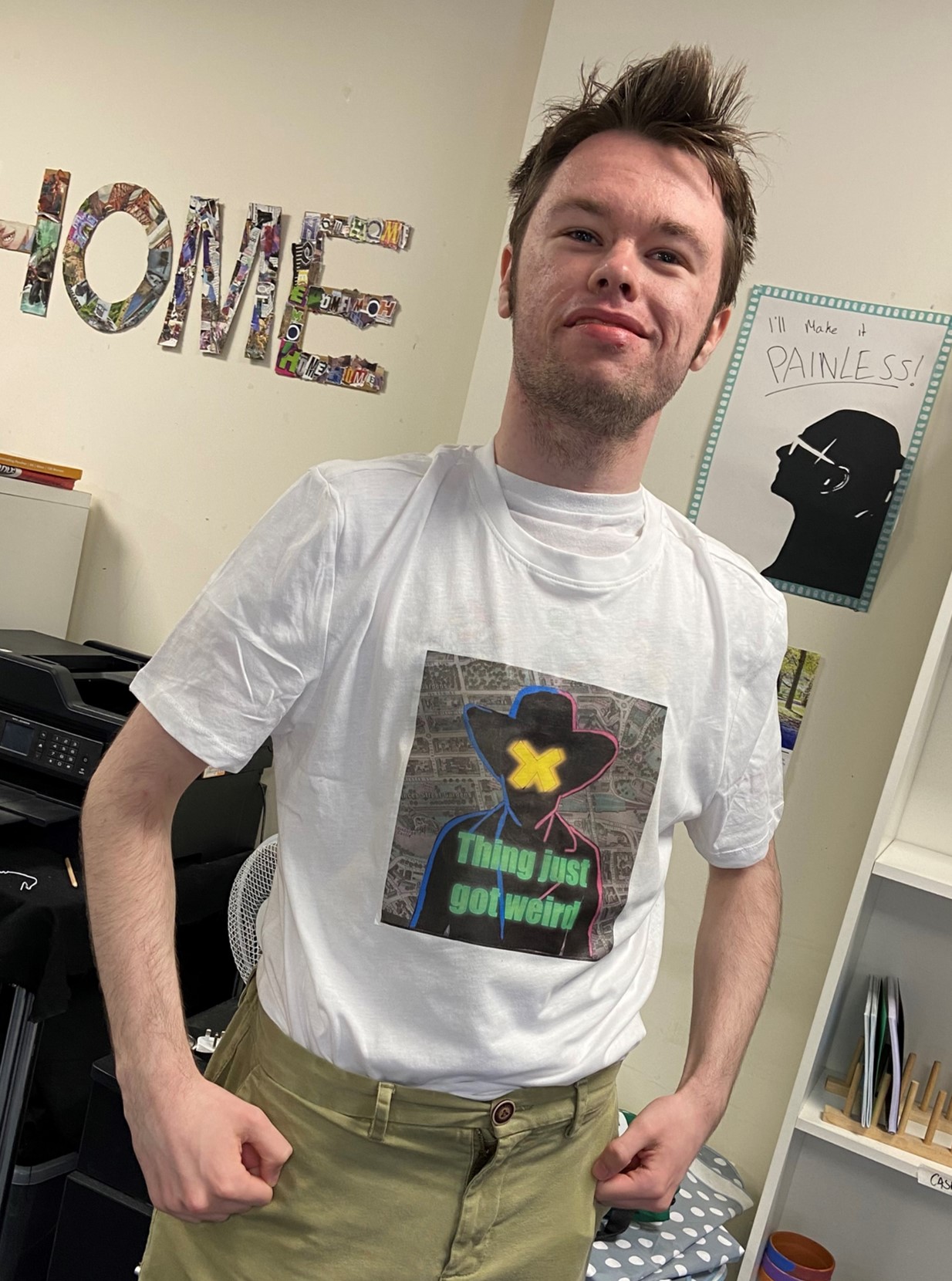
programme, modelling the custom t-shirt designed for the premiere.
In a time when arts funding in the UK faces devastating cuts, organisations of cultural importance are being defunded by the government, and most people can still recall the disastrous Cyber First ad campaign that seemingly encouraged struggling creatives to ‘rethink’ ‘reskill’ ‘reboot’ into careers in cybersecurity, Impact Arts is doing incredibly important work that underscores why creativity and the arts continue to be a necessary part of young people’s lives. Participants who have often been failed by the rigidity of the conventional education system have found a positive and supportive environment at Impact Arts, with testimonials that praise the programmes for being ‘better than school’, being ‘the best course I’ve ever done’, and helping them to improve their social skills and career aspirations. Attending the programme’s final showcase demonstrated that with a space to exhibit the projects that they put so much time and effort into, participants gained the confidence to interact with new people, show off the themed merchandise they designed for their films, and be truly proud of the work that they created. Towards the end of the showcase, I overheard a conversation that made me smile, proving the wealth of possibilities that can arise from young people joining the programmes at Impact Arts. The family of a participant who played a pyramid scheme-busting detective in the live-action short film was considering the possibility of enrolling him into an acting class. Who knows? Perhaps I witnessed the film debut of one of the many rising stars at Impact Arts.





Please sign in
If you are a registered user on Laidlaw Scholars Network, please sign in